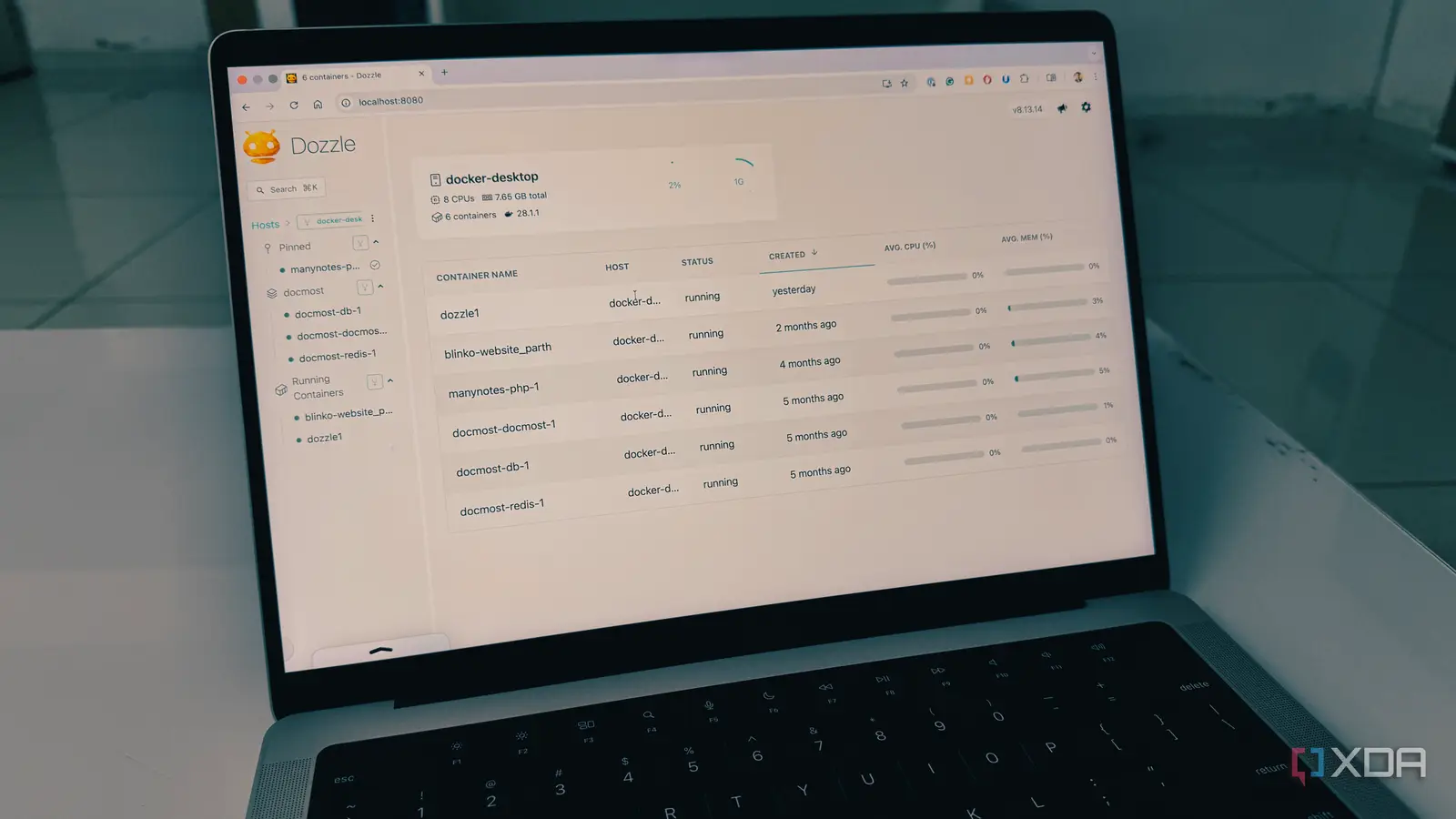
Containerization has changed how we deploy applications, but managing and monitoring them can still be a challenge. With so many services running simultaneously, it’s easy to get lost in a sea of logs and metrics. This is where Dozzle comes in. It’s a lightweight, self-hosted solution that provides a real-time look into your container logs.
If you are tired of debugging servers or wrestling with complex dashboards, Dozzle can be the perfect pick for you, as it puts the vital information you need right at your fingertips.
An intuitive UI
No learning curve
Dozzle offers an intuitive web interface. I have spent countless hours in the terminal, typing docker logs and scrolling endlessly, but Dozzle changed all of that. Its clean, browser-based UI gives me a live view of my container logs in a way that’s easy to read and navigate.
The ability to quickly search for a specific container and even filter the logs in real time feels like magic compared to my old workflow.
Dozzle is also a lightweight solution. I have worked with some massive logging stacks in the past, and while they are capable on their own, they often require significant resources to run and maintain. Dozzle is the complete opposite.
It’s designed to be tiny, both in terms of disk space and memory usage. This makes it perfect for my personal projects and small-scale deployments where I don’t want to dedicate a ton of resources just for monitoring.
Also, getting it up and running was a breeze. I literally just had to run a single Docker run command, and that was it. I didn’t have to deal with complex setup, database configuration, or spend hours reading documentation.
I can even pin specific containers for easy access from the sidebar. There is also a neat dark theme, which plays nicely on the eyes during night hours.
Real-time logging
Gets the basics right
My biggest pain point with container logs used to be how frustrating it was to get a live view of what was happening. I would type docker logs -f [container name] and stare at a wall of text in my terminal.
Sometimes, I’m unable to easily search or filter anything. Dozzle completely changed that for me. It provides a true real-time logging experience right in my browser. As soon as something happens in a container, I see the log entry pop up on the screen.
This is crucial for me when I’m debugging a new application. I can trigger an action in my app and watch the logs instantly, which lets me pinpoint errors and see the flow of my application as it happens. Now, I don’t have to deal with the lag or hassle of constantly switching between terminal windows.
Intelligent search
With multi-container viewing
Dozzle’s intelligent search is quite handy for me. I can type a part of a container name, and it instantly filters the list, which is a massive time-saver when I have dozens of containers running.
And when I’m looking for a specific error pattern or a series of events, I can just type in my regex and watch the results highlight in real time. It’s like having a superpower for debugging.
Dozzle also provides live stats. I can see its current CPU and memory usage right next to the container name. This is perfect for developers, where they can see if a new feature is causing a memory leak or a CPU spike.
Finally, for someone like me who manages more than one Docker host, the multi-host and Swarm support is quite helpful. I can easily connect Dozzle to my different servers and switch between them with a simple dropdown menu.
Ideal for multiple use cases
Home labs and local developments
My personal home lab is full of small, single-purpose containers like Docmost, Manynotes, File Browser, Syncthing, and a few utility services. For such a setup, a full-blown logging stack would be complete overkill, but I still need to see what’s going on. Dozzle is perfect for that.
I can leave a browser tab open and have a constant pulse on my entire home lab without a performance hit.
It’s also ideal for programmers developing a new feature on a local machine. During testing, if you get an error, see it immediately. It helps you iterate and fix bugs quickly.
And even in a professional environment with more complex production setups, Dozzle still has a vital role to play. While a team might use a dedicated logging solution for long-term analysis, Dozzle is the tool to reach for when something is going south.
Container monitoring made easy
With its elegant simplicity and powerful real-time logging, Dozzle stands out as a crucial tool for anyone working with containerized platforms. While over-engineered solutions like Datadog offer robust analytics and long-term storage, they often come with complexity.



